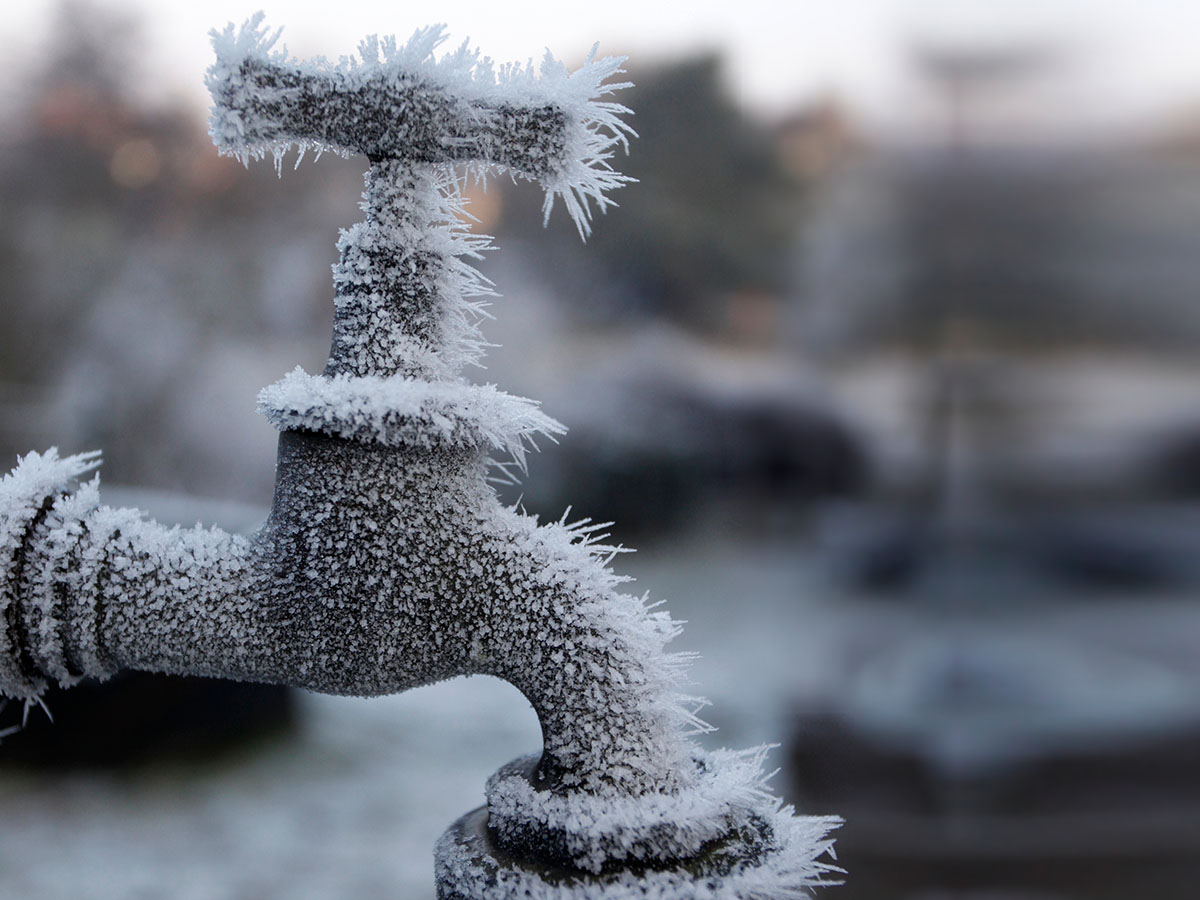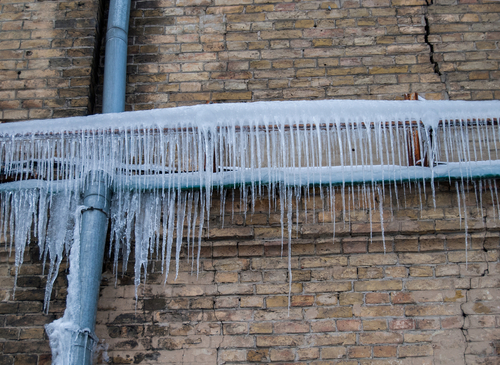Prevent Frozen Plumbing in Cold Weather: Pro Tips
Prevent Frozen Plumbing in Cold Weather: Pro Tips
Blog Article
Right here down the page you will find more great details related to Helpful Tips to Prevent Frozen Pipes this Winter.

Winter can ruin your pipes, specifically by freezing pipelines. Right here's exactly how to avoid it from happening and what to do if it does.
Introduction
As temperature levels decline, the danger of frozen pipes rises, possibly causing expensive repairs and water damages. Comprehending how to stop icy pipes is critical for home owners in chilly environments.
Prevention Tips
Shielding susceptible pipelines
Cover pipelines in insulation sleeves or utilize warm tape to shield them from freezing temperature levels. Focus on pipelines in unheated or exterior locations of the home.
Heating strategies
Maintain indoor rooms adequately heated, particularly locations with pipes. Open cupboard doors to permit cozy air to distribute around pipes under sinks.
Just how to identify frozen pipelines
Look for lowered water circulation from taps, uncommon smells or sounds from pipelines, and noticeable frost on exposed pipelines.
Long-Term Solutions
Structural modifications
Take into consideration rerouting pipelines far from outside wall surfaces or unheated areas. Add additional insulation to attic rooms, basements, and crawl spaces.
Upgrading insulation
Buy top quality insulation for pipes, attic rooms, and wall surfaces. Appropriate insulation helps keep constant temperatures and reduces the threat of frozen pipelines.
Securing Outdoor Pipes
Garden hoses and outside faucets
Detach and drain yard hoses prior to winter. Set up frost-proof spigots or cover outside taps with insulated caps.
Recognizing Frozen Pipes
What triggers pipelines to freeze?
Pipelines freeze when subjected to temperature levels listed below 32 ° F (0 ° C) for expanded periods. As water inside the pipelines ices up, it broadens, putting pressure on the pipe wall surfaces and potentially causing them to rupture.
Threats and damages
Frozen pipes can cause water supply disruptions, residential property damages, and expensive fixings. Burst pipes can flooding homes and cause substantial architectural damages.
Indications of Frozen Pipes
Identifying icy pipelines early can stop them from rupturing.
What to Do If Your Pipes Freeze
Immediate actions to take
If you suspect icy pipes, keep taps available to relieve stress as the ice thaws. Make use of a hairdryer or towels taken in hot water to thaw pipelines slowly.
Verdict
Protecting against frozen pipelines calls for positive measures and fast responses. By recognizing the causes, indicators, and preventive measures, house owners can protect their plumbing throughout winter.
Helpful Tips to Prevent Frozen Pipes this Winter
UNDERSTANDING THE BASICS: WHY PIPES FREEZE AND WHY IT’S A PROBLEM
Water freezing inside pipes is common during the winter months, but understanding why pipes freeze, and the potential problems it can cause is crucial in preventing such incidents. This section will delve into the basics of why pipes freeze and the associated problems that may arise.
THE SCIENCE BEHIND FROZEN PIPES
When water reaches freezing temperatures, it undergoes a physical transformation and solidifies into ice. This expansion of water as it freezes is the primary reason pipes can burst. As the water inside the pipe freezes, it expands, creating immense pressure on the walls. If the pressure becomes too great, the pipe can crack or rupture, leading to leaks and water damage.
FACTORS THAT CONTRIBUTE TO PIPE FREEZING
Low Temperatures: Extremely cold weather, especially below freezing, increases the risk of pipes freezing. Uninsulated or Poorly Insulated Pipes: Pipes located in unheated areas, such as basements, crawl spaces, or attics, are more prone to freezing. Insufficient insulation or lack of insulation altogether exacerbates the problem. Exterior Wall Exposure: Pipes running along exterior walls are susceptible to freezing as they encounter colder temperatures outside. Lack of Heating or Temperature Regulation: Inadequate heating or inconsistent temperature control in your home can contribute to frozen pipes. PROBLEMS CAUSED BY FROZEN PIPES
- Pipe Bursting: As mentioned earlier, the expansion of water as it freezes can cause pipes to burst, resulting in significant water damage.
- Water Damage: When pipes burst, it can lead to flooding and water damage to your property, including walls, ceilings, flooring, and personal belongings.
- Structural Damage: Prolonged exposure to water from burst pipes can compromise the structural integrity of your home, leading to costly repairs.
- Mold and Mildew Growth: Excess moisture from water damage can create a favorable environment for mold and mildew growth, posing health risks to occupants.
- Disrupted Water Supply: Frozen pipes can also result in a complete or partial loss of water supply until the issue is resolved.
WHY CERTAIN PIPES ARE MORE PRONE TO FREEZING
- Location: Pipes located in unheated or poorly insulated areas, such as basements, crawl spaces, attics, or exterior walls, are at higher risk of freezing.
- Exterior Pipes: Outdoor pipes, such as those used for irrigation or exposed plumbing, are particularly vulnerable to freezing as they are directly exposed to the elements.
- Supply Lines: Pipes that carry water from the main water supply into your home, including the main water line, are critical to protect as freezing in these lines can affect your entire plumbing system.
- Underground Pipes: Pipes buried underground, such as those connected to sprinkler systems or outdoor faucets, can be susceptible to freezing if not properly insulated.
https://busybusy.com/blog/helpful-tips-to-prevent-frozen-pipes-this-winter/

Do you appreciate reading up on Winter Plumbing Precautions: Preventing Frozen Pipes? Create a remark down below. We'd be pleased to see your opinion about this review. In hopes that you visit us again in the future. Enjoyed reading our write-up? Please quickly share it. Let another person locate it. Thanks a bunch for your time. Come back soon.
Book Appointment Now Report this page